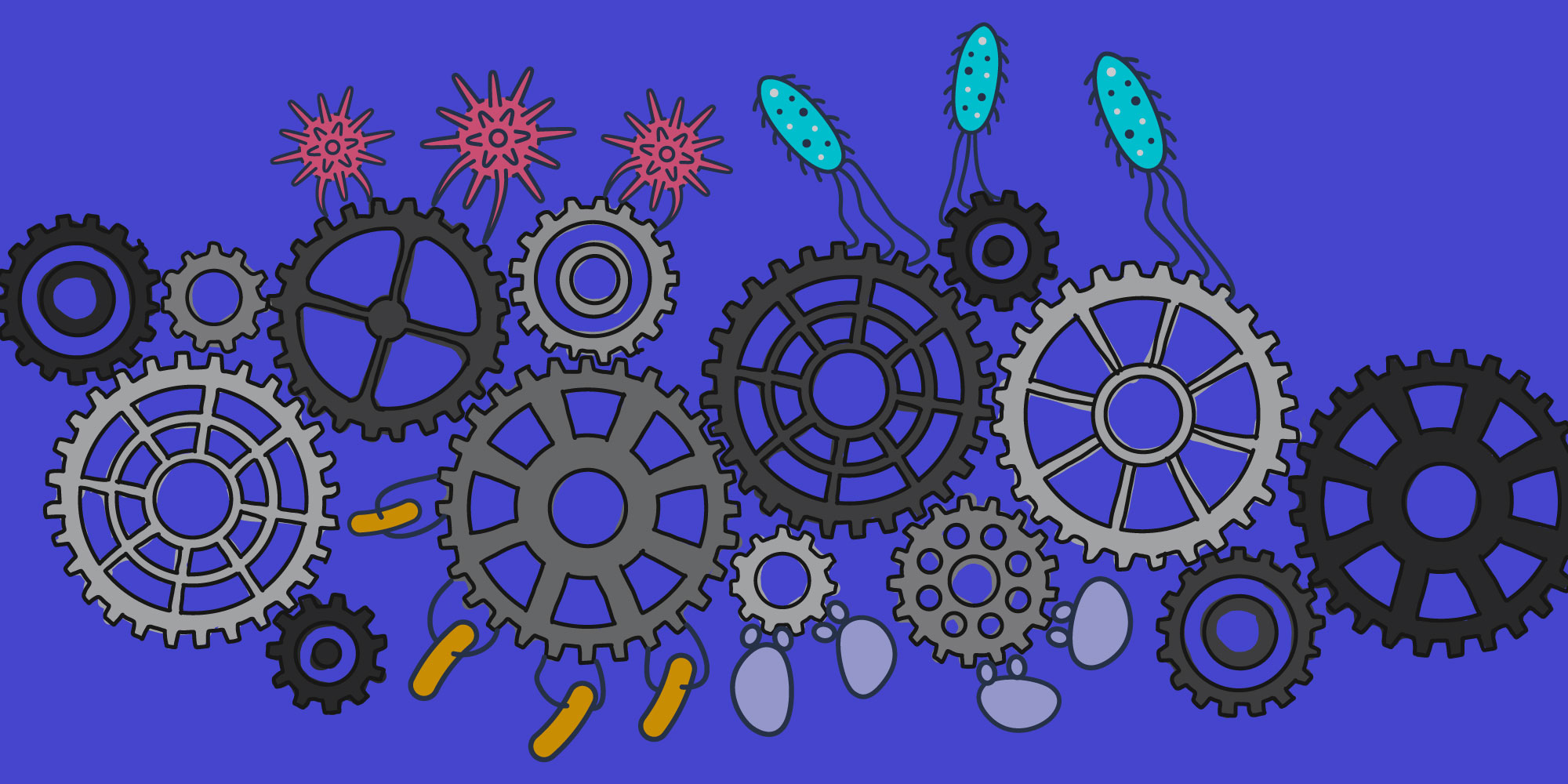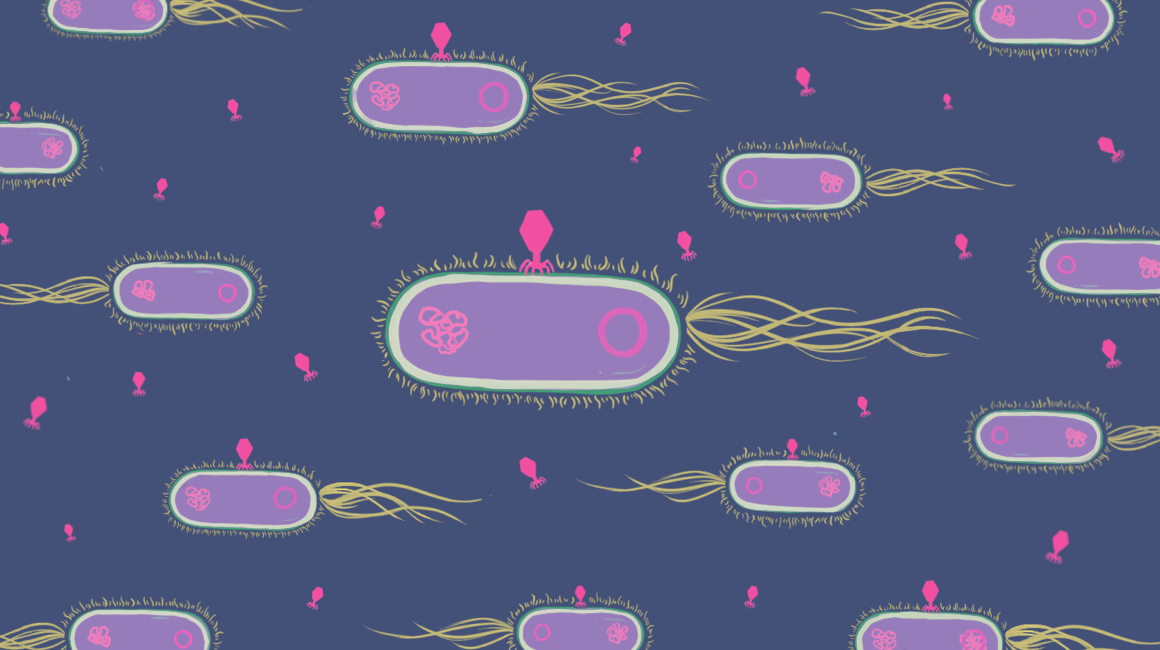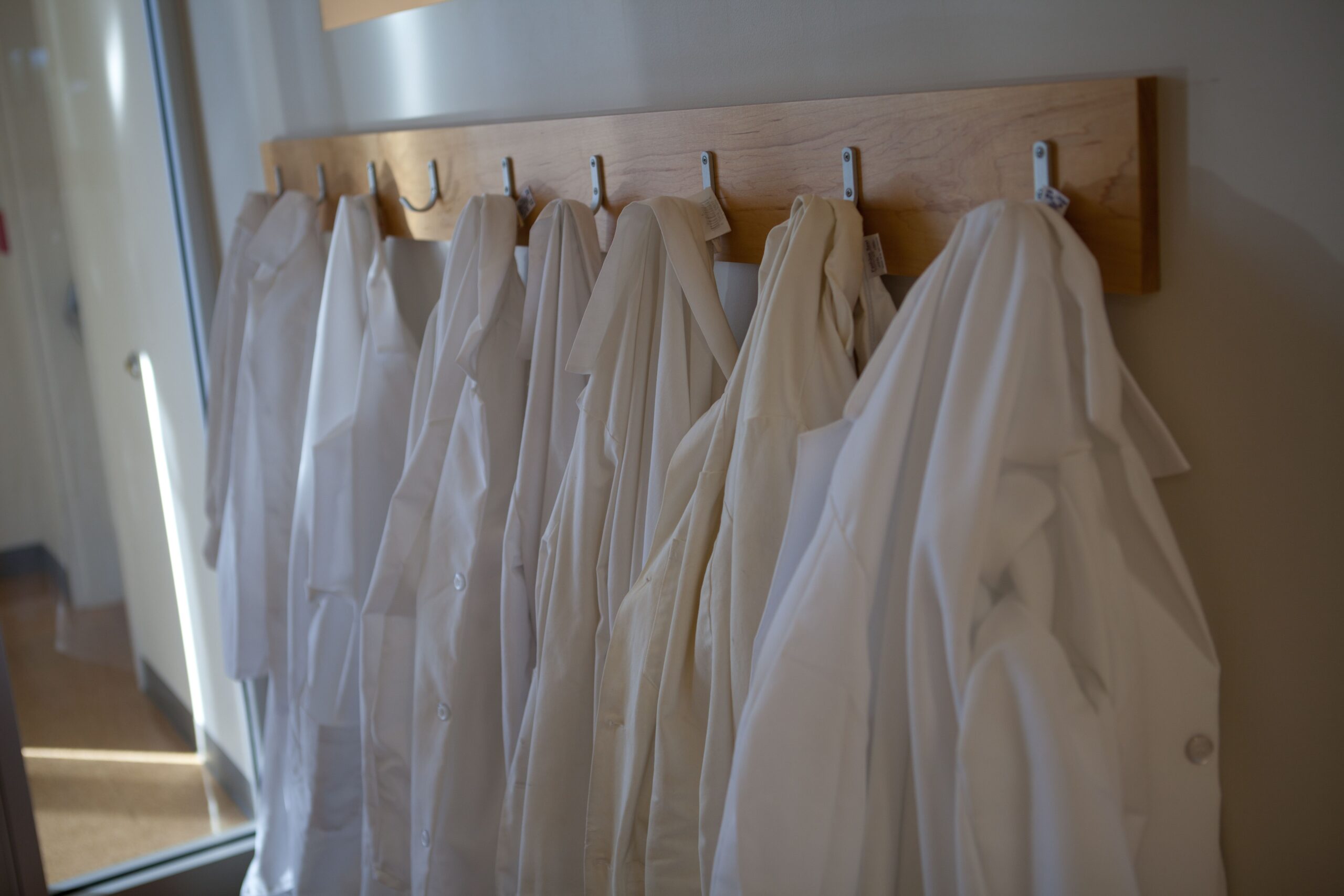
Meet an IGI Scientist – Kelsey Hern
This series introduces the public and fellow researchers to our talented scientists. We interview different IGI members to find out who they are and what makes them passionate about science.
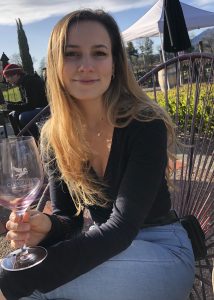
Kelsey Hern recently completed her Ph.D. in the laboratory of Adam Arkin and is now a WIES Fellow. Hern is working on the identification of lung microbes that could be inhaled as probiotics to prevent respiratory infections.
Where are you from?
I’m from good old Boston, Massachusetts. I grew up about half an hour outside the city. I love the northeast, and it was a fun place as a scientist to grow up too. A lot of tech and academics happening there.
Why did you become a scientist?
I was always a really kind of creative kid and artsy kid, I wanted to be a singer or an artist. But when I was in my early teens, I got this kind of infection called Clostridium difficile or C. diff. It’s a GI infection that we now know is really antibiotic resistant infection.
It’s kind of spooky when you get something like that. There’s two kinds of responses I think you can have to that. You can either go, oh, this is terrible and disgusting! Or you can say, this is terribly disgusting and I have to know more! I had the second response. I remember going to the library and checking out every book on parasites and stuff like that. I got really curious about, first of all, parasites and organisms that infect us, and then also how our own bodies and our own microbiomes protect us against stuff like that. That experience is how I first got really interested in science.
You mentioned creativity. What do you see as the role of creativity in the scientific process?
My creativity, I think, is what makes me a good scientist. In research, you have to come up with something different that we don’t already have in order to make good science. I think about what experiments I can do that tell a certain story, almost. Because really great scientists, or at least the people who publish papers that I like to read, are great storytellers. You don’t want to hear the same story over and over again. You want to hear something new.
What is your WIES Fellowship research focusing on?
Since the mid-2000s people have been working on making probiotics that you take orally that help your GI health. What I’m working on is making probiotics that can be inhaled and protect your respiratory health and protect people against respiratory infections.
So far the data’s been pretty good and we have a few promising candidates. Part of the technology that we’ve also developed is a pipeline that uses information on the ecology and metabolisms of these candidate probiotics to help us pick those ones that are going to be the most efficacious and most potent protectors.
How is the Fellowship going?
The world of business is super new to me and this has been a really good introduction and a really different way of thinking about science. So far I’m loving the fellowship.
What do you like to do when you’re not doing research?
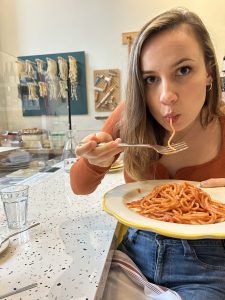
I have a few different interests. I’ve been a powerlifter for a number of years. I’m also a secret metalhead, so I like to go to metal shows with my friends. I’m also a little bit of a horror movie nerd. I like to cook and travel. I also love singing and sometimes have jam sessions with my friends. I view singing more like poetry, where it’s about bringing people together and sharing the same experience.
Compared to being in Boston, there is a little bit better work-life balance here, so people actually have time to explore more interests. Everyone around here, if you ask them what their hobbies are, they’re good at a million things.
What keeps you motivated and inspired?
I have always really cared a lot about doing something that is going to help people. And that sounds so cheesy because there are a million ways to help people too. I think one of the beautiful parts of life is that we all get to figure out what we are good at, and then try to use that to make things better. There’s so many problems in the world, but this one little problem here, I think I might be able to help with. So I just focus on that.
That’s the big picture motivation. On the day-to-day level, it’s almost every day that I make a new little discovery. When I find out something new in my research, I have a little secret that no one else has. I know something that no one else knows, and that’s such a fun thing for a bit of time. You’re just the secret keeper of this new piece of information.
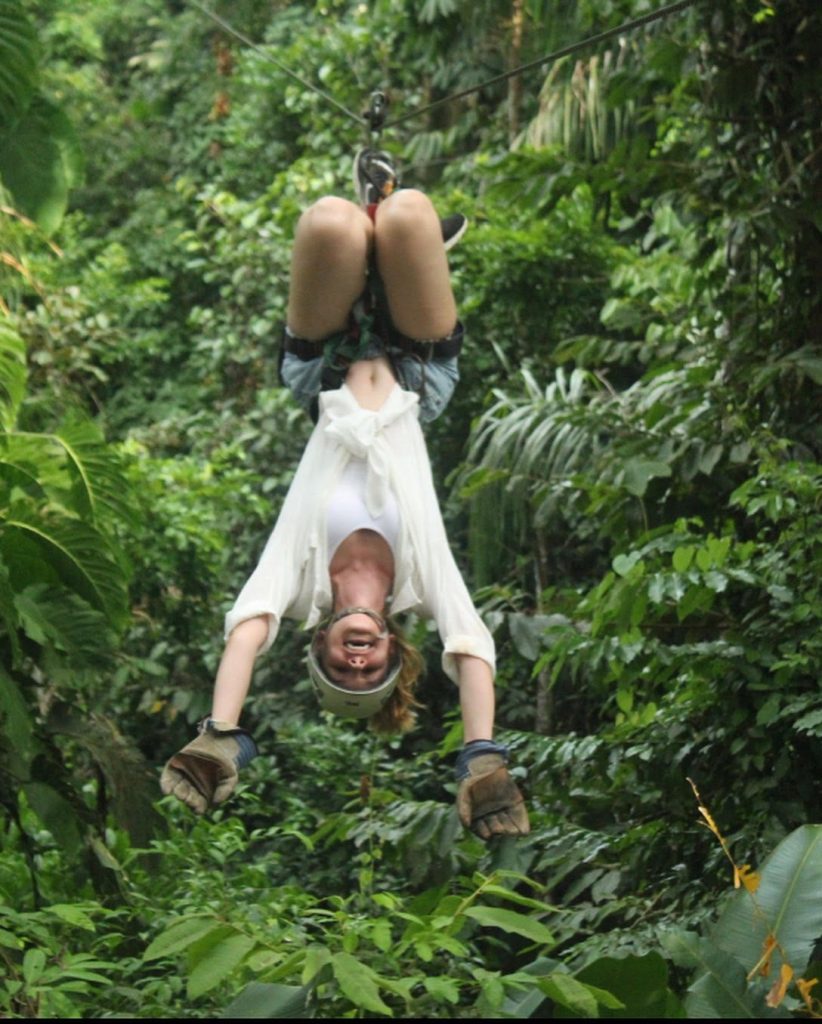
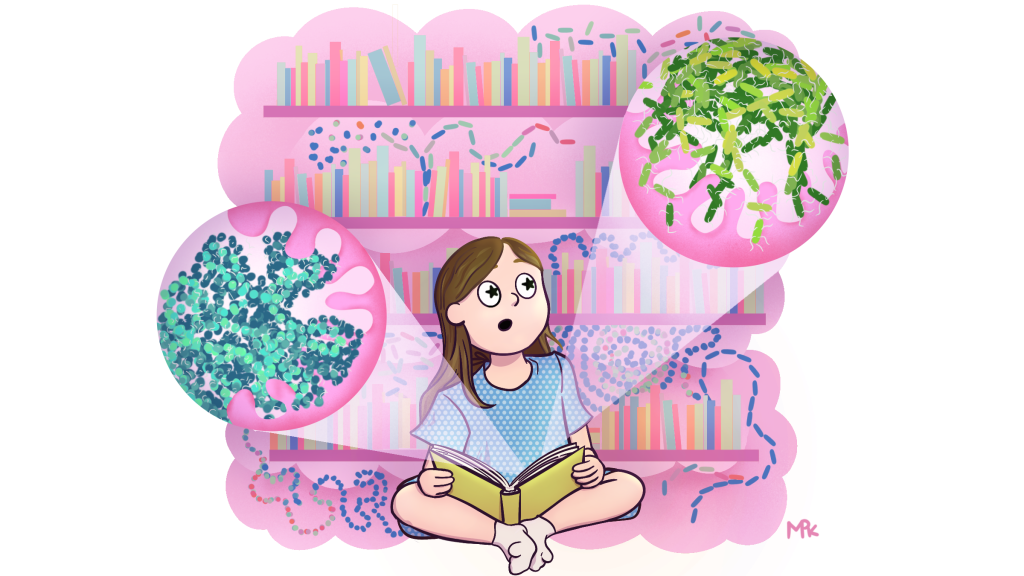
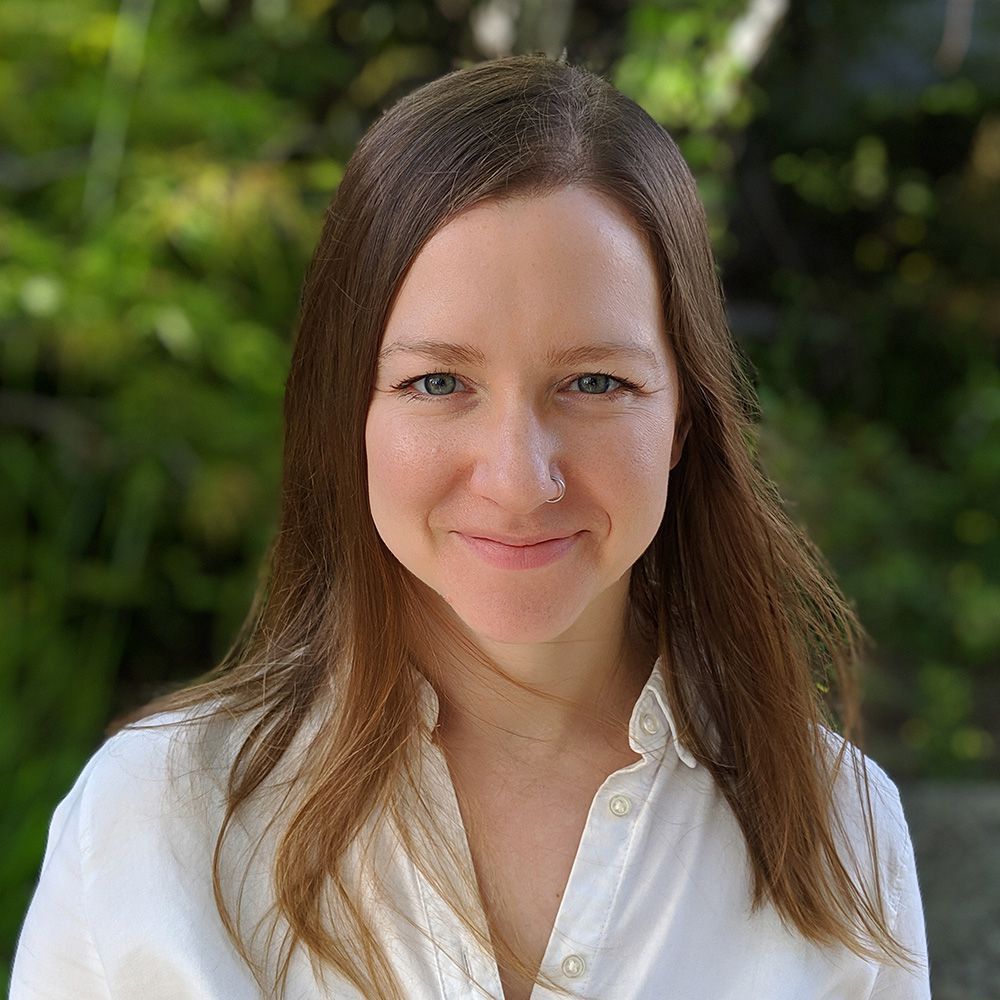 By
Hope Henderson
By
Hope Henderson

